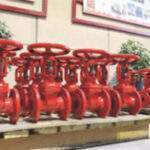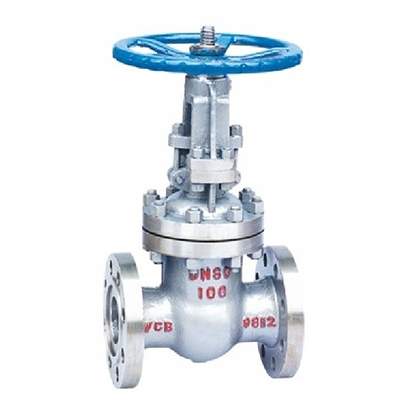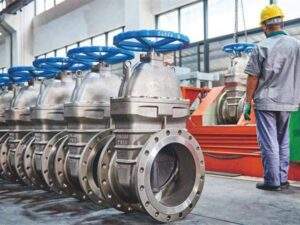Welcome to My Blog!
Before we dive into the content, if you’re interested in our products or have any questions, please feel free to visit our Contact Us page on the website. Our team is ready to assist you with inquiries, orders, or any support you may need.
Now, let’s get started on our journey together. I hope you find the content here insightful, engaging, and valuable.
Choosing the right soft seal gate valve for your project is critical to ensuring efficient fluid control, leak prevention, and long-term reliability. With numerous types, sizes, and applications available, understanding the essential features, installation considerations, and industry-specific requirements is key to making an informed decision. This guide provides a comprehensive overview to help you select the most suitable soft seal gate valve for your needs.
Understanding Soft Seal Gate Valves
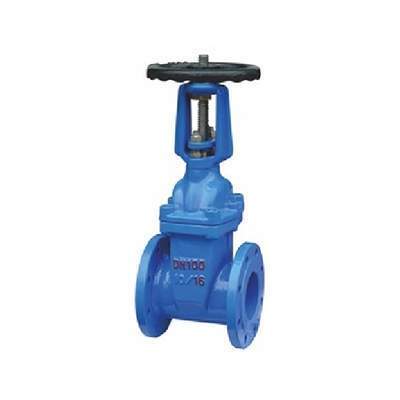
A soft seal gate valve is a type of valve that uses a flexible, elastomeric seal to create a tight closure between the valve body and the gate. Unlike hard seal valves, which rely on metal-to-metal contact, soft seal gate valves provide superior sealing performance, making them ideal for water supply systems, sewage pipelines, and various industrial applications.
Soft seal gate valves work by moving a wedge-shaped gate up and down within the valve body to control the flow of liquid. When fully closed, the soft seal ensures minimal leakage, even under high-pressure conditions. The main advantages of soft seal gate valves include enhanced sealing, lower operational torque, and improved longevity due to reduced wear on the valve seat.
Key Features to Consider
When selecting a soft seal gate valve, several critical features should be evaluated:
- Sealing Performance: Look for valves that guarantee tight sealing to prevent leakage in both water and wastewater systems.
- Durability and Material Quality: Opt for valves made from high-quality materials such as stainless steel, ductile iron, or brass, which resist corrosion and wear.
- Pressure Rating and Flow Capacity: Ensure the valve can handle your system’s operating pressure and desired flow rate. Common ratings include PN16 and PN25.
- Corrosion and Temperature Resistance: Consider the valve’s ability to withstand environmental factors such as temperature fluctuations and exposure to chemicals.
Types and Specifications
Soft seal gate valves come in various sizes, materials, and designs to accommodate different project requirements:
- Common Sizes: DN50, DN100, DN150, and larger, depending on your piping system.
- Material Options: Stainless steel, cast iron, brass, and other alloys suitable for specific fluid types.
- Pressure Ratings: Standard ratings like PN16, PN25, or customized options for high-pressure applications.
- Design Variants: Rising stem valves offer clear position indication, while non-rising stem valves save space in tight installations.
Comparing soft seal and hard seal gate valves can help determine which type is best for your project. Soft seal valves typically provide better leak prevention and lower operational torque, making them ideal for water, wastewater, and fire protection systems.
Applications and Industry Use Cases
Soft seal gate valves are versatile and used across numerous industries:
- Municipal Water Supply Systems: Ensuring reliable flow control and leak prevention.
- Sewage and Wastewater Systems: Resistant to contaminants and corrosion, maintaining long-term operation.
- HVAC and Industrial Pipelines: Smooth flow regulation and minimal pressure loss in heating, ventilation, and cooling systems.
- Fire Protection Systems: Quick shut-off capability with reliable sealing to protect against water damage.
Real-world case studies show that soft seal gate valves are preferred for projects requiring minimal maintenance and high operational reliability.
Installation Considerations
Proper installation is essential to achieve optimal performance from a soft seal gate valve:
- Step-by-Step Installation: Follow manufacturer guidelines for aligning the valve, tightening bolts, and ensuring correct orientation.
- Underground vs Above-Ground Installation: Consider access for maintenance and protection against environmental factors.
- Common Mistakes to Avoid: Over-tightening, improper flange alignment, or neglecting system flushing can reduce valve lifespan.
- Compatibility: Ensure the valve matches your piping system’s size, material, and pressure rating.
Maintenance and Longevity
Maintaining a soft seal gate valve helps extend its service life and ensures consistent performance:
- Routine Maintenance: Inspect valve seats, seals, and stem for wear or leaks.
- Inspection Frequency: Periodically check valves in high-pressure or critical systems to avoid unexpected failures.
- Repair vs Replacement: Minor issues may be fixed by replacing seals, while severe damage might require full valve replacement.
- Best Practices: Keep valves clean, lubricated (if applicable), and operated within manufacturer-recommended pressure and temperature limits.
Cost and Purchasing Guide
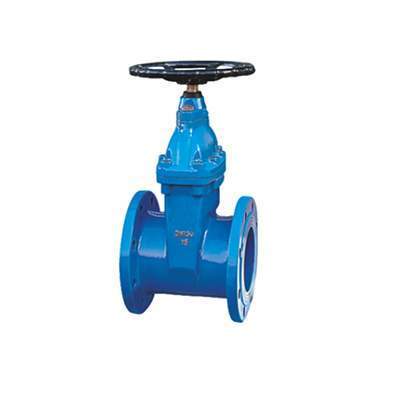
When purchasing soft seal gate valves, consider both upfront cost and long-term value:
- Average Price Range: Prices vary depending on size, material, and pressure rating. Bulk purchases or wholesale suppliers can reduce costs.
- Choosing the Right Supplier: Select reputable manufacturers with certifications and positive customer feedback.
- OEM and Customization Options: Many suppliers offer tailored solutions to meet unique project requirements.
- Long-Term Considerations: Evaluate maintenance costs, lifespan, and energy efficiency when comparing options.
FAQ
What is a soft seal gate valve?
A soft seal gate valve is a valve that uses a flexible elastomeric seal to provide a tight closure, ensuring minimal leakage and smooth operation in water, wastewater, and industrial systems.
How does a soft seal gate valve differ from a hard seal valve?
Soft seal valves use a flexible sealing surface for leak prevention, while hard seal valves rely on metal-to-metal contact. Soft seal valves typically offer better sealing and lower operating torque.
Where are soft seal gate valves commonly used?
They are widely used in municipal water supply, sewage systems, HVAC pipelines, and fire protection systems due to their reliability and ease of maintenance.
How do you maintain a soft seal gate valve?
Regular inspections, cleaning, and replacing worn seals when needed can extend the valve’s lifespan. Proper operation within pressure and temperature limits is also essential.
How do I choose the right soft seal gate valve for my project?
Consider the valve’s size, material, pressure rating, and application. Matching these factors to your system requirements ensures optimal performance and durability.
Need Help Choosing the Right Soft Seal Gate Valve?
If you’re unsure which soft seal gate valve is best for your system or project, our experts are ready to assist. Contact us today for a personalized consultation, and ensure your piping system is efficient, leak-free, and long-lasting. Don’t wait until issues arise—get in touch now to secure reliable performance for your project!


